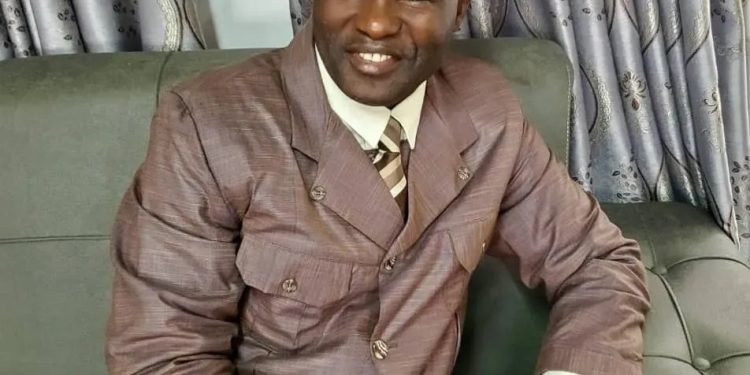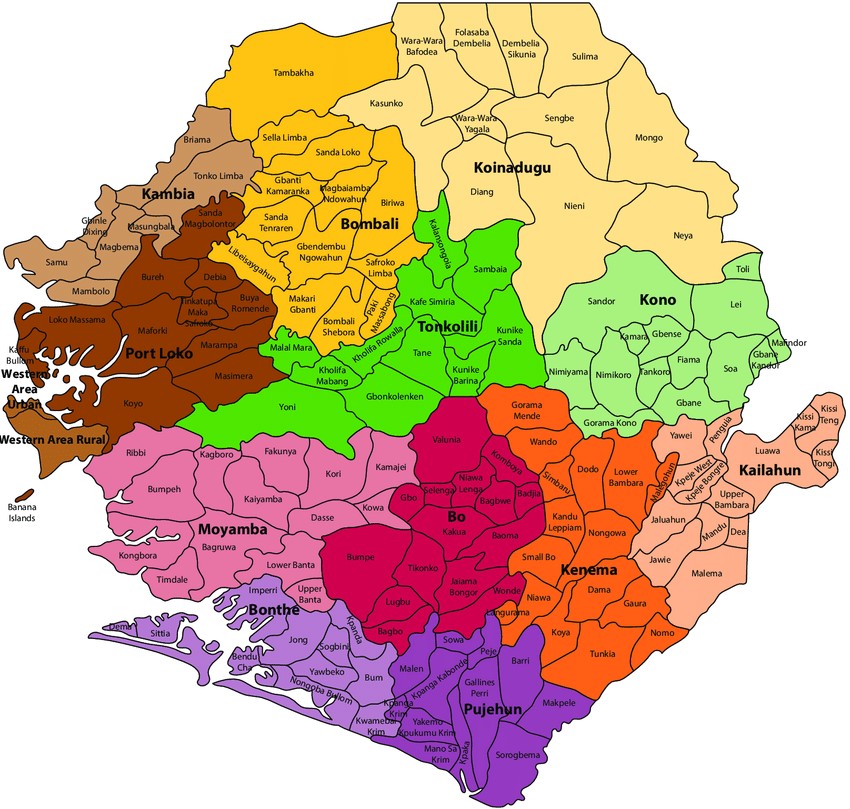If Sierra Leoneans were of the understandings that roads built by the past two political administrations of the late President Dr Alhaji Ahmed Tejan Kabbah and his immediate successor, former President Dr. Ernest Bai Koroma were cosmetics, then questions and concerns regarding the provision and exact where about the good roads must urgently answered now by duty bearers, to meet the expectations of the people.
Much is still expected from the nation’s political leaders to do the needful in building more standard road networks in the country, as the people need good roads not only in Freetown but across the board.
Hence, answers are needed from the leaderships at the line Ministry of Works Housing and Infrastructure, the Sierra Leone Roads Authority (SLRA), the agency charged with the mandate of building new roads and fixing old ones when required, if it is not the Road Maintenance Fund Administration, whose responsibilities are the regular upkeeps of all roads in the country. All of whom have failed woefully in delivering their mandates to public expectations, for which they expected to provide answers.
It is unimaginable to see Freetown public motorways in pot-riddle condition right at the entrance of the presidential lodge at Hill Station, under the managerial authority of Mohamed Kallon as Chief Executive Officer. The line ministry of Works and its agencies; SLRA and RFMA are annually bank-rolled by government from the Consolidated Revenue Funds for jobs are hardly delivered to the public. Yet heads of these agencies are still on the jobs with laxities under the watch of President Julius Maada Bio, ignoring the facts that the public, including hundreds of road users ranging from commercial and private motorists who are moving around the country with businesses and public service assignments are in desperate need of good roads.
Is it because certain group of people were of the views and notions that the nation does not live of roads is the reason for pot holes on every road in Sierra Leone?
Considering the significance of roads every one need them, which is why there is growing calls and concerns for more good road networks in Sierra Leone. And like we noted in recent commentaries, if state governance initiatives such as Feed Salone and the likes are to be fully actually, then more good road networks should and must be built now than later to facilitate the movements of agricultural products and machineries from one farm land to the as well as enhancing the transportations produces to markets. So put an end to the blames shifting narratives about cosmetic roads and do the people’s work! There is a sense in which history can certainly recall you for your good in building good road and fixing bad ones. Hygienically, every district, region, town and city in Sierra Leone need good road network. So there must be equitable distributions of these national resources fairly as it is democratically required.
So such legitimate concerns being raised about good road networks by all and sundry should be urgently taken into considerations by government to promote developmental initiatives and ideas with the proclivity of connecting people, places, trade, commerce, businesses and investments to once again pave a smooth path economically viable nation.
This is because of the facts that even those cosmetic roads as detractors called them before April 2018 are no longer motorable to connect people, goods and services, which is why there are popular calls on government and President Bio for standard roads to enable the people easily move about with their goods and services from point to point as they were doing under the previous Kabbah and Koroma political administrations. More than those can be done under this incumbent administration with the right political will to improve the living standards of the people.
It could be recalled that Kabbah’s Poverty Reduction Strategy Paper (SL-PRSP) started the ring–road network at the Peninsular, major public highways and streets in West central and East of Freetown. In rural communities, government also constructed networks in several places in the north, east and south of the country including the Freetown-Conakry highway. His legacies were warmly embraced by the Koroma regime with the Agenda for Change. The AFC rolled out mass infrastructural development with road works from north, east, west and south. Roads were built everywhere in the country to a point that there were allegations of corruption in the awards of some contracts.
Good road networks faded off from the scenes of infrastructure since April 2018 when the Julius Maada Bio led governing Sierra Leone People’s Party (SLPP) took up office as president of the country. A party known for its passionate hates for constructive national development, with little or no national development plan, the Bio administration unveiled its development plan after two to three in office, as if they were now certain of taking up governance in 2018. Since then to date road infrastructural development has been crippled from Freetown the least rural feeder roads to major municipality, districts and sub-urban road networks which are currently in deplorable state. It is however observes that the more things change under the Bio presidency, the more they remain the same in the last six years.
To optimists, much was really expected from the then government in waiting – the Bio SLPP who spent ten years opposing their All People’s Congress (APC) rivals for allegedly wasting state finances on building what they described as cosmetic roads, but didn’t learn from their rival’s gaffes. It is six years down the line since the Bio led SLPP regime sat in even those said cosmetic roads are still nowhere to found. Instead our roads are becoming worse than before.
And in a situation where things remain the same, with vivid absent of good road networks, the FORUM must humbly entreats government and the appropriate line MDAs in the infrastructural sector to urgently fix the so-called pot-riddle cosmetic roads and save the lives of the people.
May Allah/God save Sierra Leone!













